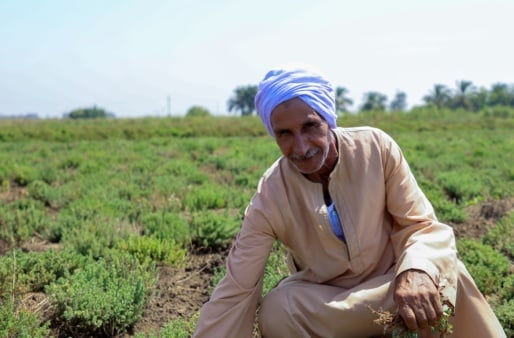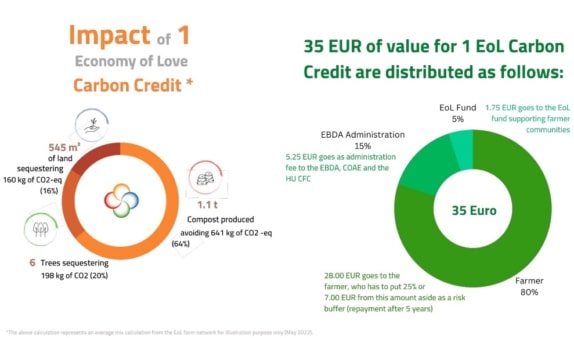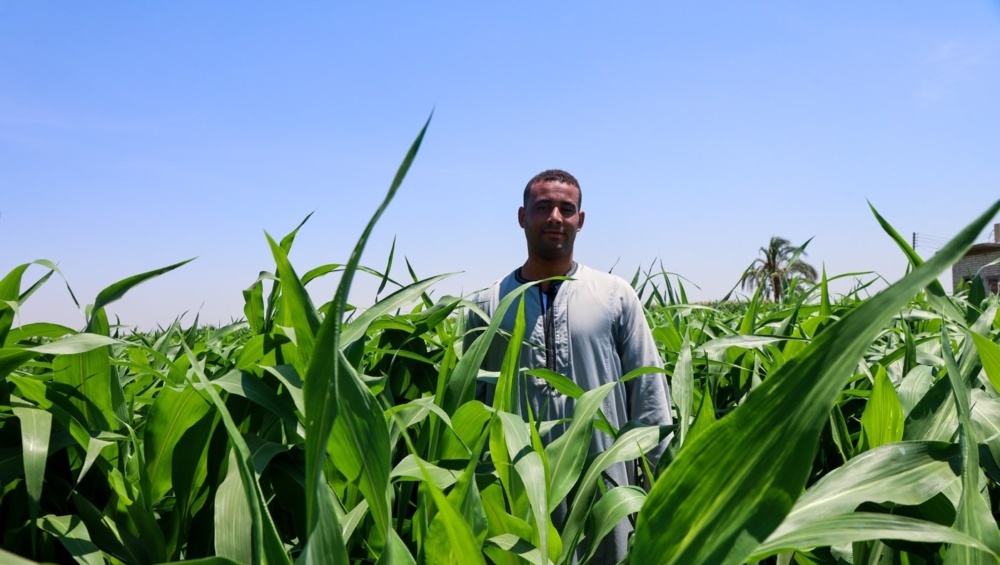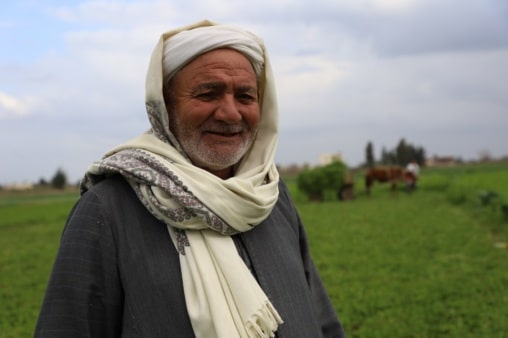For over 40 years SEKEM has been working with small scale farmers in Egypt promoting regenerative agriculture methods. For the past few years SEKEM together with DEMETER Egypt (also known as Egyptian Biodynamic Association, EBDA) and Economy of Love Standard created an agricultural model that aims not only to improve the livelihoods of smallholder farmers, but also to address some of the country’s biggest issues like food security and climate change through use of the regenerative practices.

Agriculture in Egypt
USAID reports that the agricultural sector in Egypt provides 28% of all employment and contributes around 11% of GDP. Despite this, only 4% of Egypt’s total area is considered agricultural land; this limited space forces farmers to use intensive agriculture practices which can have detrimental effects on the environment and farmer’s health, while the average income of farmers stays low: between 2-3 thousand EUR per year. Besides, according to Our World in Data, agriculture accounts for roughly 10% of Egypt’s carbon dioxide emissions, which is equal to around 32 million metric tons emitted annually.
Economy of Love Carbon Credits
One of the benefits of Economy of Love (EoL) certification for smallholder farmers is its ability to issue carbon credits that serve as an additional source of income. Roughly estimated, this amounts to 200 EUR per acre per year on average. When taking into account the typical farm size of 6 acres, it results in an extra 1200 EUR – almost half what a farmer would normally make in a year. Not only does this provide much-needed financial relief for the farmer but also encourages further adoption of more sustainable farming practices which contribute towards mitigating climate change impacts.

Progress Up to Date
The first phase of the project was launched in 2019 at the SEKEM Wahat farm located in the Western Desert of Egypt. It was focused on prototyping the Economy of Love Carbon Credits concept. After successful results from this pilot program, the second phase began in 2022 with onboarding 2,100 smallholder farmers with a total of 13,000 acres of land. Now the project enters its third phase with a goal to have 40,000 new smallholder farmers enrolled by 2025.
Other Partnerships
The EoL model was very well received in COP27 that took place in November in Egypt and has been endorsed at the UNFCCC website. New breakthroughs are now expected to be made during COP28 in 2023 in Dubai. International companies, such as Danone, and United Nations agencies like the World Food Program have already expressed interest in collaborating with the initiative.
Other strong partners for selling Economy of Love Carbon Credits and contributing to planting trees at the farms include Ecosia, ClimaCoin, the Zero Fund, Weleda and Lebensbaum. These are just some of the many companies that are willing to join SEKEM to work towards creating a more sustainable future.


